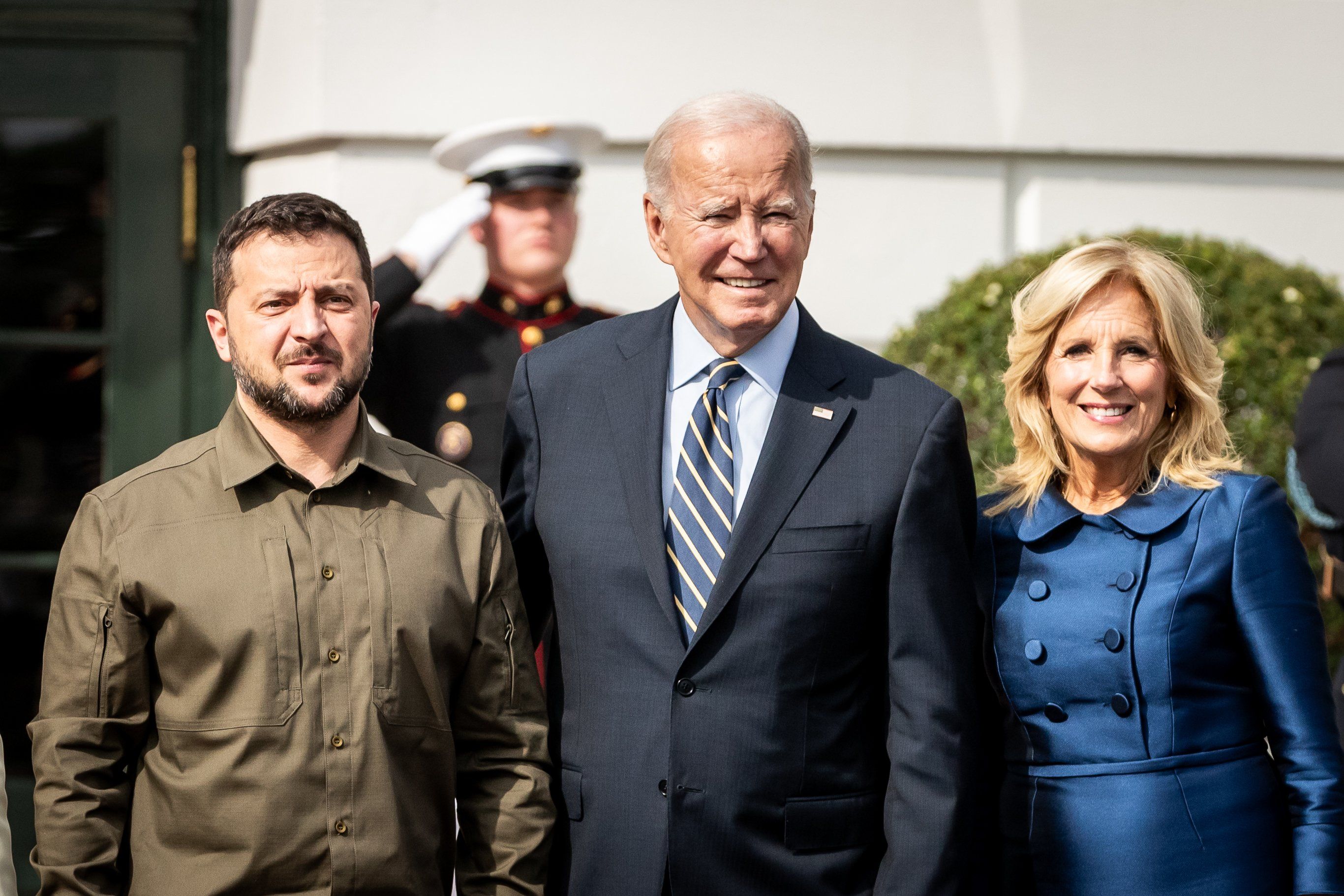After a week of high-stakes diplomacy, including stops in Washington, the UN General Assembly in New York, Ottawa, and Lublin, Poland, Ukrainian President Volodymyr Zelensky returned home amid fresh conflict in Russia’s war against Ukraine.
The situation on the Crimean peninsula intensified in recent days with Kyiv launching a series of missile attacks on the port city of Sevastopol. The first targeted Russia's Black Sea Fleet headquarters, where high-level officials of the Russian navy were meeting, and reportedly killed nine people. This comes after Ukraine recently struck a Russian submarine and landing strip in Sevastopol, a strategic hub for Russia’s navy and one of the largest cities on the Crimean peninsula. Ukraine has been upping its attacks on the peninsula over the past month, aiming to degrade Russia’s defense systems – including its much-lauded S-400 systems – and to undermine Russian morale.
Then on Sunday, Russian air strikes on the southern Ukrainian region of Kherson killed two people and injured several more. Ukraine’s air force claimed that Russia also carried out air attacks on the port city of Odessa and elsewhere in southern Ukraine.
Ukrainian attacks on Crimea, which Russia illegally annexed in 2014, were reportedly carried out using Storm Shadow missiles, supplied to Ukraine by the UK and France, prompting Russian Foreign Minister Sergei Lavrov to accuse Western powers of "de facto fighting against us, using the hands and bodies of Ukrainians.” Russia is only going to be more enraged now that the US agreed to give Ukraine ATACMS, which would allow Kyiv to strike Russia well beyond the frontlines.
- Russian Black Sea Fleet commander still alive despite Ukraine's claims - GZERO Media ›
- Is Biden's embrace of Israel a political liability for him? - GZERO Media ›
- Ian Explains: 2023: A good year for warmongers - GZERO Media ›
- Ian Explains: Gaming out the 2024 US election - GZERO Media ›
- What Ukraine needs after two years of war with Russia - GZERO Media ›
- Will Ukrainian airstrikes inside Russia shift the war? - GZERO Media ›
- Can Zelensky's 'victory plan' bring peace to Ukraine? - GZERO Media ›
- Czech president Petr Pavel: Ukraine war fatigue weakening NATO unity against Russia - GZERO Media ›
